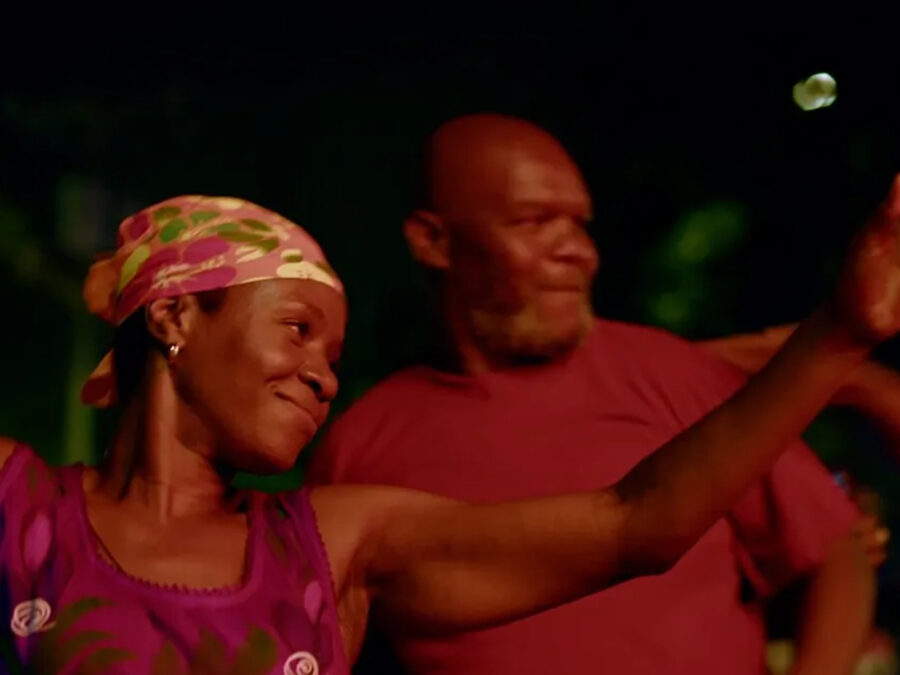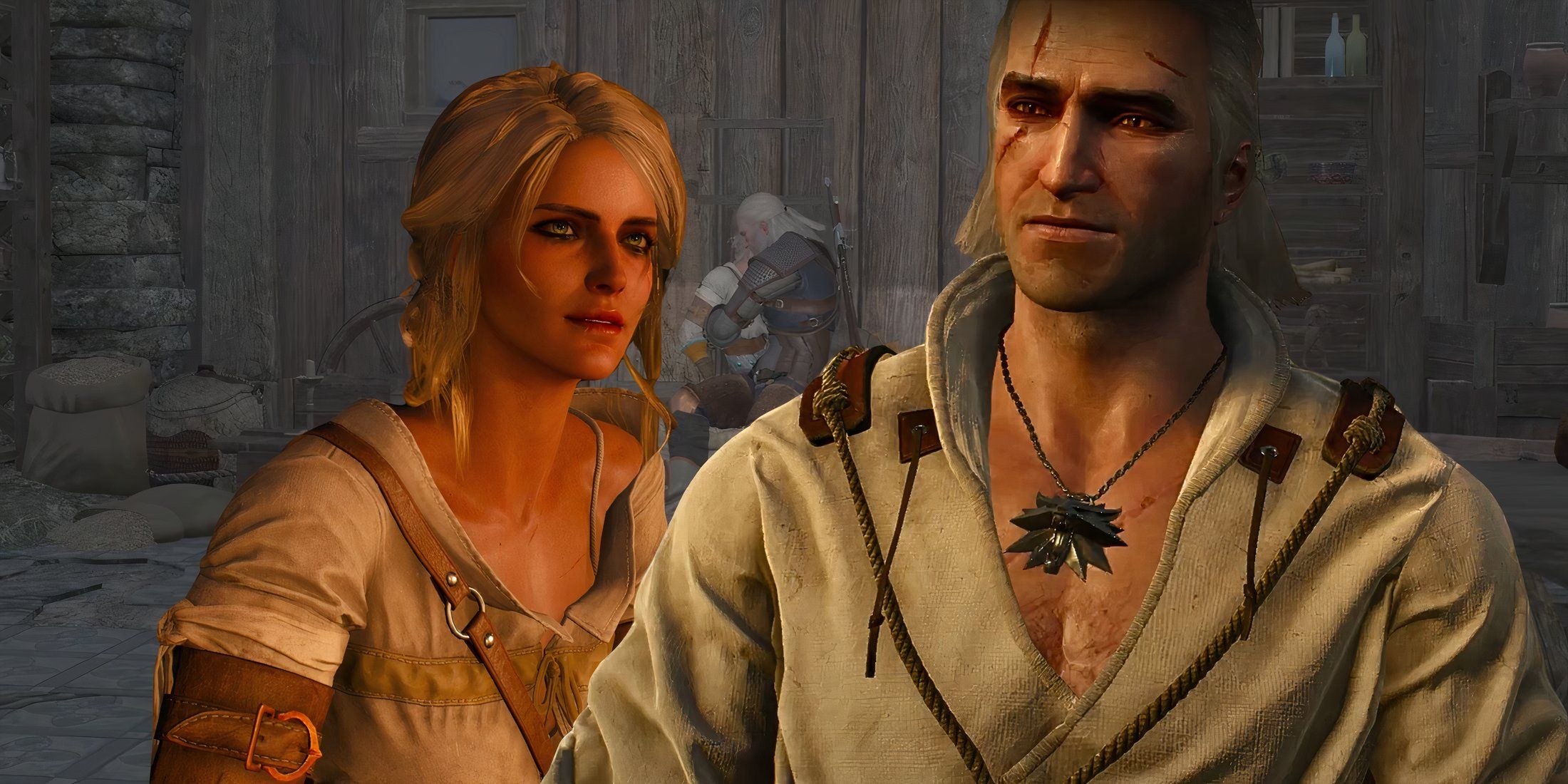For the people who live in South Florida, everything seems in flux. Every bit of landscape, every building we cherish, every person we walk by – they all seem to be disappearing over the months and years. The gentrification of the city is all too real for those who live here and filmmakers like Monica Sorelle, whose debut feature Mountains is having its UK premiere as part of the BFI’s Black Debutantes series, are keenly aware of this fact.
Perhaps that consciousness is precisely what makes Mountains so compelling; it’s not just a portrait of Miami’s Little Haiti neighborhood and the people that inhabit it – focusing on a Haitian demolition worker and his family navigating the realities of redevelopment – but actively in conversation with the uncomfortable ways we can participate in our own displacement.
The seed for this picture was planted when Sorelle moved back to Miami after film school, coming home so that she could be around her culture again. She grew up in North Miami and her mother worked in Little Haiti, but she notes that she quickly “realized that Little Haiti was changing in a very subtle way.” Sorelle credits the short film Right to Wynwood for “illuminating what gentrification looks like and who the players were, especially in South Florida, where the same developers who bought up Wynwood property are now buying up property in Little Haiti.”
Early on, she tried community organizing and was quickly burnt out on it, but this remained with her, especially while working for Third Horizon out of O Cinema (whose space in Wynwood was later demolished), where she had the idea for what became Mountains. As Sorelle and her co-writer Robert Colom were walking to lunch one day, she noticed “there were still a lot of houses in Wynwood, but they were all slated for demolition. A demolition worker trying on his shoes caught my eye, leaving his coworkers and just crossing over towards the still-residential side of the neighborhood.”
“The thought of ‘what if he lived there’ crossed my mind,” she continues. “What are the implications of being part of the gentrification of your own neighborhood?” This train of thought led them to apply for (and subsequently win) Oolite Arts’ Cinematic Arts Residency, where the microbudget feature would take form. “I think we believed that we could sound an alarm. It’s bleak out here, and I don’t know if this microbudget film is going to be the catalyst for anything, but I think we changed our outlook to being archival instead of preventative. We were able to document a space in time before it changed drastically.”
Though the film is only making its London premiere now, Monica has had time to reflect on her film since it premiered in 2023, as well as the way the place she captured on film has continued to change. “I’m really working through my grief about Miami changing so rapidly and violently, knowing how these developers are playing monopoly with our homes, our neighborhoods, and our cultural institutions, and not feeling like there’s a way to truly stop it.”
And that sensation of impending doom amidst the quotidian goings-on of life in South Florida is precisely what one can feel throughout Mountains. “I could have approached this in so many ways and, for some people, it would have been much more melodramatic if the characters were fighting a developer with a cigar and a map saying ‘I’m going to take over this town’,” Sorelle says with a laugh, “But I’m more interested in taking gentrification from this political concept and exploring what it looks like on the ground floor for this family.”

The politics of the film are impossible to ignore though, especially as those in power in the United States perpetuate falsities about Haitian immigrants and strip them of rights. Monica is, rightfully, baffled that she has to have this kind of conversation: “It feels so stupid to have to do this, but I also thought a lot about demystifying Haitian culture for a lot of people. Even though we have such large populations in major metropolitan cities, I feel like we’re underrepresented and a lot of what you hear about us is geopolitical tragedies and news from the island. In a way, I just wanted to talk about the culture I grew up in and the family members I know, just honoring them in a way that I don’t think they’ve been honored in cinema before.”
Films like Fernando Frías de la Parra’s Ya no estoy aquí and Ira Sachs’ Little Men were influential to the approach Sorelle took with Mountains – the former in how to find “relatability in specificity” in its depiction of Monterrey and the latter in its “quiet beauty in approaching gentrification, power, and economic status” – but Italian neorealism also directly influenced its creation. “We’re watching, in real time, an entire city and neighborhood being changed before our eyes, so having a mostly realist approach was the best way to show how capitalism really sucks the magic out of everything.”
“Haitians and other Caribbean folks are so magical. There’s a mysticality to our experiences and our spirituality, but I wanted to ground the film in realism to imagine that the only thing that existed for our lead, Xavier, was the pursuit of material success. We only lean into magical realism near the end to usher him out of that mindset,” she explains. That realism even ties into the way that language is approached in the film, with characters and actors actually speaking Creole like the Haitian immigrants in our fair city actually do. It’s something that Sorelle is conscious she could not have managed with a bigger movie, but the limitations of the microbudget feature did not stop her from making the film she wanted to make.
“I was motivated by the personal ethos of the film and the small crew,” Monica says, noting that the community she built with this film is a grand part of what made the experience worthwhile. “Production was really mobile in case of anything, like if a neighbor passed by that we could interview. We kept our footprint small in the community, but there were things that happened that made shooting hard. We’d be on a demolition site and thought they were on break and in the middle of the dialogue, the work started up again and we’re having to scream at each other through the scene.”
“We had to roll with those punches, but everyone showed up. Everyone who’s there, on screen or off, put their all into it because they believed in the story, and that’s indicative of the kind of community filmmaking that I hope to continue being a part of, even as I scale up. Maybe a smarter filmmaker would make something that can be shot in Belarus or something, but I’ve built a community in Miami and I’m in love with them and want to continue making films about us.”
For now, she’s continuing to prep and create new work and, as she jokes, Monica is “pretty gagged” about her place in BFI’s Black Debutantes series, which she is thankful to Rógan Graham for putting together and placing these works in front of audiences in the UK. “I’m showing with so many heroes and elders that I look up to, like the fact that my name is anywhere near Cauleen Smith is amazing. Even with the constraints that these women had on their budgets, on their films, on their creativity, they were somehow still able to make groundbreaking work. I’m so proud to be standing arm-in-arm with these brilliant women.”
Mountains plays at the BFI on May 29 2025 as part of the Black Debutants season.
The post Monica Sorelle: ‘I’m working through my grief about Miami changing so rapidly and violently’ appeared first on Little White Lies.













 Bengali (Bangladesh) ·
Bengali (Bangladesh) ·  English (United States) ·
English (United States) ·